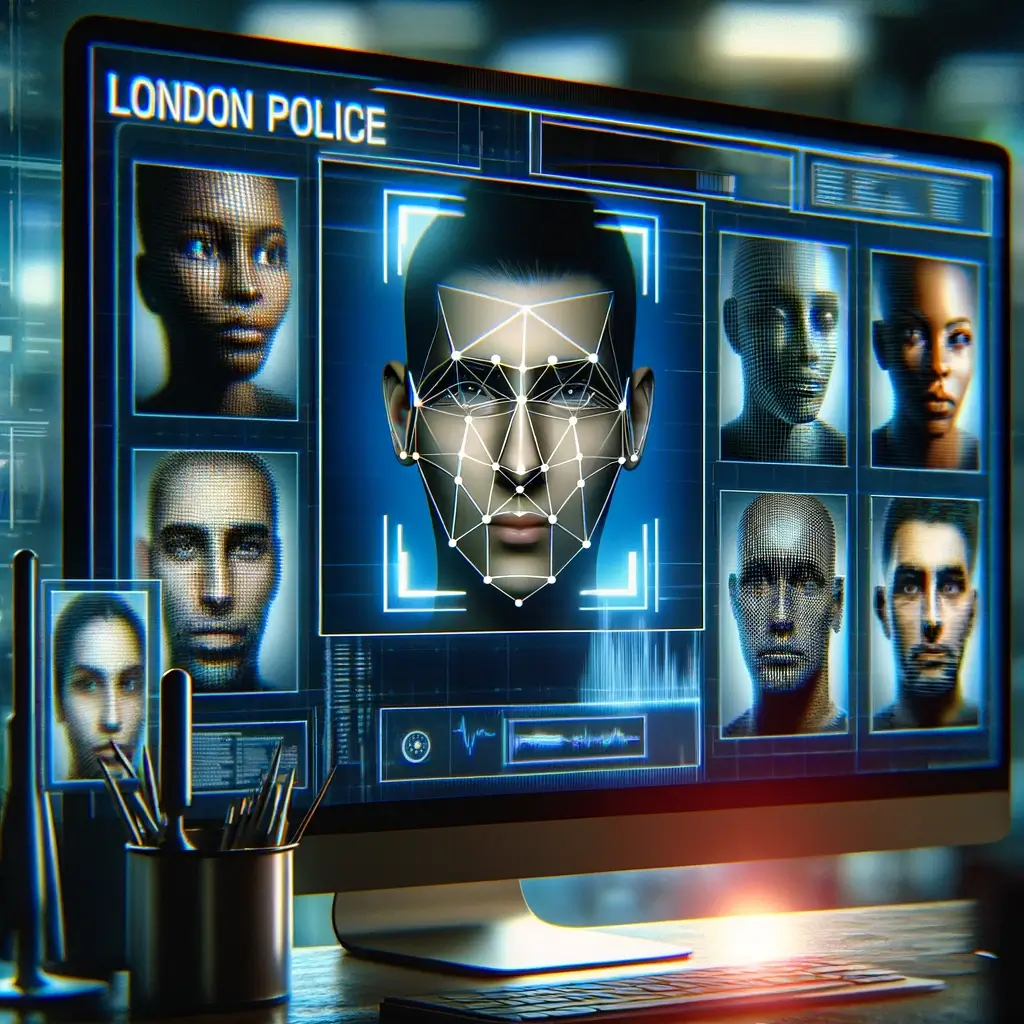Is Facial Recognition System Safe? London Plice Arrests and Privacy Debate
South London Witnessed AI-Aided Arrests
London’s Metropolitan Police used live facial recognition cameras to arrest 17 people last week. These arrests took place during targeted operations in Croydon and Tooting on March 19th and 21st.
One arrest involved a 23-year-old man flagged by the system for an outstanding warrant. He was later found with blank ammunition and drugs, leading to the seizure of more ammunition, stolen phones, and cannabis from a linked property.
The facial recognition system identifies people on a “watchlist” of those wanted by the police. The Metropolitan Police considers this technology “precision policing.”
This follows 42 arrests made in February using the same system. BBC News reports that the number of those charged remains unclear. Offenses included sexual assault, theft, and breaches of anti-social behavior orders.
Privacy Concerns Cloud Facial Recognition
Civil rights groups are worried about the potential for misuse, including wrongful arrests due to the technology’s inaccuracy.
Last year, UK lawmakers called for a reevaluation of live facial recognition after a proposal to grant police access to a vast database of passport photos.
Critics like Big Brother Watch highlight the technology’s high error rate, with 89% of alerts failing. They also express concerns about racial bias, as the system is reportedly less accurate for people with darker skin tones.
The Metropolitan Police defends its use, stating that data is deleted if there’s no match and that the system is unbiased. However, some remain unconvinced.
Transparency Concerns Around Police Use
A recent Freedom of Information request revealed the limited information available about how the police use facial recognition. Citing national security and law enforcement concerns, the Metropolitan Police refused to disclose details about covert use.
Lessons from Algorithmic Policing
Concerns exist about relying too heavily on AI for police work. Examples from the US show how faulty algorithms can lead to wrongful arrests.
Facial recognition’s racial bias further disadvantages marginalized groups. Inaccurate arrests erode trust between police and the public, a critical issue in both the UK and US.




